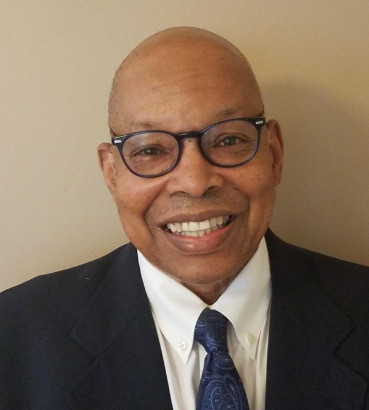
Isaac Dixon has spent his career in higher education pushing to use data and information to dramatically rethink the status quo and looking for ways to improve. And even though his work as the Associate Vice President for Human Resources at Portland State ends in April, he’s still not done.
As a part of the PSU Collaboratory, he’s asking questions about the size of the university’s future footprint, especially if a portion of the workforce will occasionally work from home even after the pandemic is over.
He’s also asking why the U.S. continues insisting on an 8-to-5 schedule, when it’s proven that rush hour is bad for the climate and dangerous to people’s health and safety. And he’s thinking creatively about issues of land use and sustainability such as Portland State partnering with a housing advocacy group and building affordable housing. Couldn’t this be a way for the university’s lowest-paid employees to purchase their first home and build wealth they could pass on to future generations?
“We can do better, and a lot of times it's just taking that first step that's the scariest part of change,” Dixon said. “But I think colleges and universities are going to have to change more rapidly than other institutions because their students, staff, and faculty are going to demand changes.”
Dixon started in higher ed in 2009 after completing his doctorate in Organization and Management at Capella University. He wanted to move to a more mission-oriented environment, and Lewis & Clark University in Portland, Oregon (where Dixon has lived since 1978) had an opening for an Associate VP for HR. He stayed there for six years and is most proud of using technology to get the department away from mundane tasks and more focused on performance management, training, and development of managers and supervisors.
“If your HR organization is spending a lot of time on transactional work—moving paper from here to there—or re-entering the same data numerous times and double-checking information because your systems don't talk to one another,” Dixon said. “Beg or borrow the money to get your systems upgraded. Doing so will be a whole new lease on life for your HR organization and you can repurpose those jobs and make better use of the talents and skills of your HR team.”
Dixon said that many newer employees in higher ed are mortified by the way that people are managed. He feels the industry has more turnover than it should because talent isn’t being managed effectively. Instead of what he terms the “annual litany of sins” known as the performance review, Dixon suggests more frequent conversations in which the manager asks his direct reports what their goals are, and how the manager can close the gap between where they are and where they want to be.
One of the biggest challenges for HR professionals in higher ed is to be more data-driven in order to make fact-based decisions around managing people.
“The biggest change that I’ve seen over the five years I’ve been in Portland State is people's expectations about what work is,” Dixon said. “Younger workers have very different understanding about work and what it means. We hire them into a job and we expect them to sit in the same desk every day for 20 years, take the gold watch and go out the door. That's just not reality anymore.”
The pandemic might be the catalyst that forces universities to change their habits. “When we return to our campuses I think we're going to find that a lot of things have changed and that employees at all levels in your organization want more input, and more transparency,” Dixon said. “That’s a good thing, and we need to understand that change cannot happen without discomfort.”
Dixon said he learned from his grandmother that the greatest gift in life is to learn how to ask questions, and then sit back and listen as others carry the dialogue. He has used that approach to guide his team through discussions centered around diversity, equity, and inclusion at Portland State, which is situated in one of the whitest cities in America.
As uncomfortable as the conversations can be, Dixon moved the discussion forward with this team by having different members of the team drive the agenda, whether it was suggesting films to watch, books to read, or topics to discuss.
Dixon has cherished his role in human resources at Portland State, where he has also taught classes as an adjunct faculty member for 17 years.
“At Portland State I had students who had little idea about what the HR profession was,” he said. “To see them working in and/or running HR organizations of their own, owning homes, and raising families, is a pretty cool gift to be able to give somebody. The key takeaway for me is that HR is a profession that can change lives.”
*
About the Author: Harold Gutmann is the director of brand and marketing strategy at Santa Clara University. He is a longtime writer and editor who is proud to work in higher education, and encourages all job seekers to consider it.
#FeaturedContent#Profile